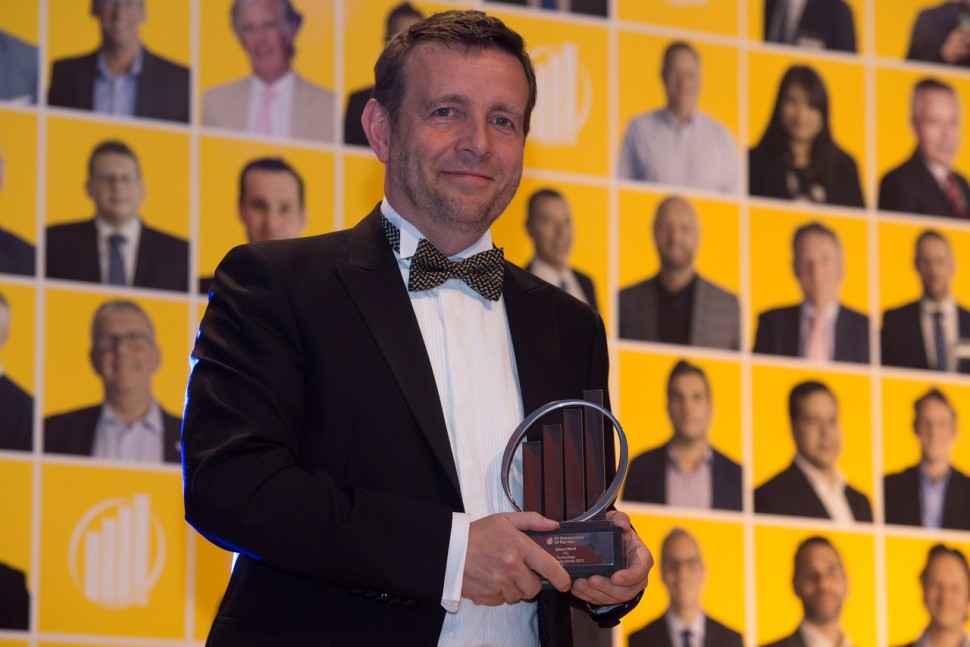Archives
-
Simon Ward discusses the many reasons a company might rebrand, some admirable, some less so.
The dreaded rebrand
For instance, a company’s reputation may have become tarnished through their own activity, and they look to rebranding as a way of projecting a fresher face to their customers and investors.
Sometimes companies go through a rebrand without any attempt to tackle deeper issues, in the hope that a slap of paint will solve their woes.
In some instances, it’s hard to avoid the suspicion that someone in the organisation is bored with its current image and wants to make a mark by changing the company logo from a square to a circle.
It’s no wonder rebranding can come with a stigma attached. There are always those who will whisper: if it ain’t broken, why would they fix it?
The brand refresh
But there are also laudable reasons for re-evaluating your brand. Markets evolve rapidly, channels expand and change. Successful companies grow, become too big for their original skin and must cast off a previously beneficial cocoon to emerge a butterfly.
At ITG, we haven’t gone through anything so radical as a rebrand, but we have grown rapidly in the past six years and gone from a handful of like-minded individuals to over 360 employees, working in diverse areas, from digital to artworking studio, from software developers to account teams.
We have expanded our services, gained numerous new accounts. The opportunity for the senior management team to speak to everyone in the business individually is not what it once was.
When you grow rapidly, there is a danger of people becoming siloed, disconnected from your core ethos. We therefore judged the time was ripe for a full assessment of ITG. Take stock, as it were: does everyone in the company fully understand our ethos, what we’re trying to achieve? Does the face we project – our website, our communications – reflect the company we have become?
Outsourcing or insourcing
To answer this, we engaged external agencies to speak to our clients and conduct an extensive staff consultation, so we could receive an impartial understanding of how we are perceived and where we sit in the market.
It might appear ironic that a company such as ITG, which has carried out discoveries of this kind for numerous clients, should engage the services of external agencies. But no matter how clear your focus as a C-suite on your values and business drivers, you should never mark your own homework. It is always prudent to seek the services of someone outside the business, who can look at your offering with clear mind and fresh eyes.
This doesn’t mean we didn’t involve our own employees. Far from it. There were numerous discussions both internally and between internal staff and external agencies. We invited staff to consider the big questions: who are we? What do we do? Why should companies use our services? Is there anywhere we can do better?
Revisiting the ITG website
In truth, we were pleased to discover that external perception pretty closely matched our internal perspective: no need to change the shape of our logo, after all. But certain interesting elements did come to light.
Looking at the Inspired Thinking Group (ITG) website and our own marketing communications, we discovered that what was perfectly suited to what we used to be was starting to be left behind by what we were rapidly becoming.
We set about creating a new website, based on the answers to the big questions we had considered at length. We addressed other areas of our comms, some of which were merely tweaks to ensure everything we did accurately reflected who we are.
With the new website launched and our refresh complete, I’ve had more time to consider how useful the exercise was. My conclusion? The repositioning enhancements were well worth the effort.
However, even more significant was involving others in the organisation in strategically thinking about what we do. Every job gives the holder a unique insight into their specific area, and their feedback is invaluable. But more importantly, by engaging people across the company, it encourages everyone to take greater ownership of the brand and culture they help to create: these thing are as much theirs as yours.
And that’s an outcome I’d recommend to everyone.
Until next time…
About Simon Ward
Simon Ward ITG – Simon is the founder and CEO of pioneering technology-led marketing company, Inspired Thinking Group (ITG). ITG delivers best-in-class marketing software, procurement and studio services to dozens of blue-chip clients, including Audi, M&S, KFC, PUMA and Heineken.
Simon Ward SP Group – Prior to ITG, Simon founded SP Digital in 1998, and in 1999 bought SP Print to form SP Group, creating innovative marketing and point of sale displays for some of the world’s best-known retailers, including M&S, Sainsbury’s, Holland & Barrett and Calvin Klein
-
Outsourcing your creative or artworking needs to external agencies is a given in marketing. After all, that’s where the expertise lies, and where the resource can be scaled to your requirements.
When we formed Inspired Thinking Group (ITG), we determined that the agency side of our business – our Studio, with its banks of artworkers, packaging and retouching specialists, its copywriters and creatives – had to be available round-the-clock. After all, our clients are international, and the world doesn’t stop at 5.30pm Greenwich Mean Time.
But when you’re creating tens of thousands, or even hundreds of thousands of artworks every year, you have to ensure you have a pretty robust quality control process.
Quality control
Artworkers will review what they’ve created, but it’s not sufficient for them to mark their own homework. Your production and account teams will check the artworks, but often they’ll be looking to see it correctly matches the brief, not always giving artworks that extra level of scrutiny they require.
Dedicated quality control teams are of course the way to go: people with the ability to apply a forensic level of analysis to anything that’s thrown at them.
They can be an odd sort, of course. I recently overheard one of our QC team ask his fellows the following question: “Would you say Chelsea are better than Arsenal?”
Sounds like a simple enough query, but after a short pause, the answer came back. “No. I’d say Chelsea is better than Arsenal. In this instance, you need to use ‘is’ because you’re referring to the team as a singular entity rather than individuals acting independently.”
So, you wouldn’t necessarily want them at your dinner party, but you do want them poring over your artworks.
A lesson from the publishing industry
But there’s more to efficient quality control than employing the right individuals. You also need the best possible processes in place. And where do you find those?
Strangely enough, not in the agency world, but in the world of publishing. No matter how tight our deadlines, how great our workload, national newspapers have been confronting these problems for a lot longer, and have evolved a pretty robust system.
The key lesson we took from publishing is that quality control isn’t something you do at the end of the process: it’s something you do right at the start. When our Studio receives a new creative or bespoke brief from a client, our production managers don’t give it straight to the artworkers, they give it to QC to review.
The process
The brief goes through an in-depth level of analysis – the crucial process of prequalification, before it gets anywhere near InDesign or Illustrator. Grammar and spelling are checked. Questions are asked – is this offer clear? Are there any legal implications? Are all the images correct? Is there any ambiguity in the brief? Is any information missing? If necessary, questions are fired back to our account teams and clarification sought.
This can delay getting it on to a designer’s desktop – something that can initially trouble traditionalists, who don’t feel the job has been started until they see it being designed on a Mac. However, once they realise that prequalification considerably increases the accuracy and speed of the process (through better briefs and vastly reduced amends rounds), they soon see the benefit.
Once the artwork has been created, it pays a second visit to QC for the traditional proofreading stage – to ensure the artwork has been created to brief and all the elements are correct.
The result is an enviable accuracy rate for our Studio, and a team I can always call on if I ever want to know the correct plural of octopus.
Until next time…
About Simon Ward
Simon Ward ITG – Simon is the founder and CEO of pioneering technology-led marketing company, Inspired Thinking Group (ITG). ITG delivers best-in-class marketing software, procurement and studio services to dozens of blue-chip clients, including Audi, M&S, KFC, PUMA and Heineken.
Simon Ward SP Group – Prior to ITG, Simon founded SP Digital in 1998, and in 1999 bought SP Print to form SP Group, creating innovative marketing and point of sale displays for some of the world’s best-known retailers, including M&S, Sainsbury’s, Holland & Barrett and Calvin Klein.
-
In every company there are disagreements. It wouldn’t be healthy to employ people who agree with you on everything. You need people who not only come up with their own ideas, but who question yours.
It’s good to draw your talent from different pools: people who have different experiences and approaches to issues. Sometimes they can show you an angle you haven’t considered, and as a CEO you have to be prepared to say, “you know, you may have a point.”
In this instance, however, I’m sure that I’m absolutely in the right. I don’t care what my fellow board members and marketing department say. They’re wrong, I’m right.
There is absolutely no way I should be sitting here writing a blog about winning an Entrepreneur of the Year Award.
Blowing my own trumpet
It’s really good to get it out there, they say. Read the citation. It talks about our passion for innovative technologies, pioneering new approaches, how we help marketing departments operate more efficiently. We can’t bury that under the carpet.
No, I tell them. It sounds like I’m blowing my own trumpet, and people don’t like that. And we should listen to the people.
Then I get the long faces. Can’t you just slip it in somewhere – mention it in passing?
How do you mention something like that in passing? Spent a joyous weekend painting the shed and polishing my Entrepreneur of the Year Award.
But it’s not about you. It’s the company, the people who work with you. Think how good they feel knowing that Inspired Thinking Group’s achievements are being recognised.
And there they have me a little bit. That damned new angle. Because they’re right, of course. The nice people who award these things like to pick out individuals, as if everything good about a company comes from one person.
Entrepreneur of the Year award
But every CEO knows that’s not the case. Yes, you can set the course of the ship, but without top quality engineers stoking the engines, skilled navigators adjusting the course to steer you through the turbulence, and team players across the vessel striving in a common cause, no amount of good ideas are going to come to anything. Enterprise doesn’t stand alone.
So the truth is, the people who work for ITG have just won me an Entrepreneur of the Year Award, and publicly thanking them for all their hard work and dedication does, after all, seem a pretty reasonable topic for a blog.
Until next time…
About Simon Ward
Simon Ward ITG – Simon is the founder and CEO of pioneering technology-led marketing company, Inspired Thinking Group (ITG). ITG delivers best-in-class marketing software, procurement and studio services to dozens of blue-chip clients, including Audi, M&S, KFC, PUMA and Heineken.
Simon Ward SP Group – Prior to ITG, Simon founded SP Digital in 1998, and in 1999 bought SP Print to form SP Group, creating innovative marketing and point of sale displays for some of the world’s best-known retailers, including M&S, Sainsbury’s, Holland & Barrett and Calvin Klein
-
Simon Ward discusses partnership with boutique retail agency, Vitamin.
Giving retailers a boost
Some of our biggest retailers are facing major challenges: the prevalence of no-frills, lowest-price-focused competitors; the increase in online purchases from retailers with lower overheads, and often more favourable tax regimes; and from innovations in marketing technology, whether it’s more interactive digital POS or the rapidly changing advertising environment.
These challenges permeate from the marketing department to the shop floor, and creating a joined-up strategy to tackle them all in a coherent manner involves input not only from marketing and the Board, but from multiple departments. And as many businesses operate in silos, each packed with people who are busily firefighting their own challenges, it’s no wonder some retailers are struggling to manage change.
As a marketing support company with a range of subject matter experts to call on, we have often stepped in to help our retail clients. It can be helpful to consult with someone not charged with tackling business-as-usual, who can step back and look at specific problems with a clear perspective.
Nevertheless, the challenges have now become so great that you now have to provide experts who are not just at the top of their game in one or two related disciplines, but across every aspect of retail marketing. Unless they have the experience and expertise to see the whole picture, they’re not going to be able to tackle the massive challenges that might be afflicting the company.
So what to do? Even an agency of our size and expertise would struggle to independently grasp every issue. We could put in large teams of experts in different fields, of course, but that’s a big resource to commit – and to charge for – so to tackle this problem, we decided the best course would be to seek out someone who has a proven track record across every aspect of retail marketing, and who is canny enough to be able to see all problems, great or small, and advise on how to tackle them.
But where do you find such a person?
We were lucky. We found two. I had met Natalie Somerville and Claire Roshanzamir before, and was extremely impressed. They have impeccable pedigrees in retail marketing, but from the inside. They have worked in senior positions at several big-name retailers. They met when working for Tesco, where Natalie was head of group brand and Claire head of communication planning.
Fortune, it seems, was shining on me. Both had recently left the client environment to set up their own boutique retail agency, Vitamin. Dissatisfied with some of the retail agencies they had employed in the past, where often theoretical marketing ideas rule over true, in-the-mud experience, they decided they would bring all their wide experience to bear in helping other retailers through these difficult times.
I immediately saw a synergy between Vitamin and ITG. As a boutique agency, they can concentrate more of their time on their core roles than they might if I offered to bring them into the company. Instead, by buying into Vitamin, I was able to offer them the substantial backing of a large studio and multichannel subject matter experts, as well as our technology proposal, buying power and financial expertise.
They in turn have taken our already impressive retail marketing offering to an even higher level. We now have a much-strengthened, more strategic team, which can advise and guide our clients across all retail marketing disciplines, processes and the latest in executional innovation. And in a rapidly changing retail environment, that’s a good team to have.
Until next time…
About Simon Ward
Simon Ward ITG – Simon is the founder and CEO of pioneering technology-led marketing company, Inspired Thinking Group (ITG). ITG delivers best-in-class marketing software, procurement and studio services to dozens of blue-chip clients, including Audi, M&S, KFC, PUMA and Heineken.
Simon Ward SP Group – Prior to ITG, Simon founded SP Digital in 1998, and in 1999 bought SP Print to form SP Group, creating innovative marketing and point of sale displays for some of the world’s best-known retailers, including M&S, Sainsbury’s, Holland & Barrett and Calvin Klein.
-
Let your staff grow
Delegation is hard. As a CEO, you love your business – you care about every department, every person and every client. You probably even concern yourself with whether the paper’s GSM should be re-evaluated, or whether that picture in reception should be moved slightly to the left.
Delegation is hard, but it’s also very important. If you have the right people, in the right department, doing the jobs they’re best at, you’ll be free to concentrate on your most important role – making sure your business continues to succeed and is prepared for the future.
I recently promoted two of ITG’s directors to managing directors of customer service – a job I had been juggling myself. They are both highly motivated, passionate people with talent and acumen to burn.
Chris Heath, a director at ITG since it formed in 2009, worked alongside me as client services director at SP Group. Lisa Elrod joined us as customer service director in February 2013, after 14 years as client director at print and marketing specialist Bezier.
Now that Chris and Lisa are overseeing the delivery of customer service to our many prestigious clients, not only do they have the opportunity to further fulfil their potential, but those many prestigious clients are guaranteed the absolute attention they deserve.
If you want your company to grow, your staff needs to grow with it. ITG has experienced phenomenal expansion since its formation six years ago, last year entering the Sunday Times Tech Track 100, which recognises the UK tech companies with the fastest growing sales. These new appointments have given me the freedom to focus on further growth and strategic acquisitions, including overseeing the significant expansion of our US operation.
Retaining a strong engagement and relationship with our clients is key for ITG, as listening and adapting to their wants, needs and direction has been the driving factor in our growth and success as a service business. The promotion of Chris and Lisa has ensured this remains our key consideration at all times, and it has provided an improved structure for the scale of business we have become.
The professional landscape is always changing, shifting, propelling forward; and to ensure you’re in the right shape to navigate the ever-unpredictable road ahead, you need to make sure your business is in the right shape to drive forward and keep ahead of the pack.
Until next time…
About Simon Ward
Simon Ward ITG – Simon is the founder and CEO of pioneering technology-led marketing company, Inspired Thinking Group (ITG). ITG delivers best-in-class marketing software, procurement and studio services to dozens of blue-chip clients, including Audi, M&S, KFC, PUMA and Heineken.
Simon Ward SP Group – Prior to ITG, Simon founded SP Digital in 1998, and in 1999 bought SP Print to form SP Group, creating innovative marketing and point of sale displays for some of the world’s best-known retailers, including M&S, Sainsbury’s, Holland & Barrett and Calvin Klein.
-
Engineering your supply chain
I’m extremely pleased to announce that Inspired Thinking Group has been appointed to manage the print procurement of shopping centre manager and owner, intu. We manage all the print for a lot of big companies now, and if it’s not too immodest to say so, we do it rather well.
There’s no magic to it, of course (although employing a team of top-notch print experts is a good starting point), but to mark this new partnership with intu, I thought it might be a good idea to share one or two pointers on how to get the best from your print supply chain.
This is one the biggest bugbears facing marketers today. When you have to produce hundreds of thousands of posters, leaflets and the panoply of POS, the last thing you have time for is selecting the best possible printer for every job.
Instead, the temptation is to fall back on the one or two tried-and-tested suppliers you’ve worked with for years: they know your products after all, and they’ve pushed out the boat on a number of occasions to get the job done, and well… you probably feel a bit disloyal looking at other options.
Loyalty is a good thing. You want good relations with your suppliers. Not only is it good for business, but we’re all human. Much more satisfying to run a successful business and be nice to your suppliers. I’ll return to the topic of loyalty at the end of this blog.
At the same time, one of your favourite printers might be excellent at one kind of work, but not be properly set up for another. Out there, there’s probably another printer who has the exact equipment you need for that specific job, and who can turn it around more quickly, at a higher quality and a better price.
When you’re spending millions on print, even a slight re-engineering of your supply chain can shave a significant slice off your marketing budget. And that’s where we come in.
The first factor in our success is an incredibly well-engineered supply chain. We don’t own any printers, which means we don’t have to give work to our own people just to keep the presses busy. Instead, we audit printers in our supply chain thoroughly and regularly, advising them on how to upgrade their equipment and practices to make them more competitive. At the same time, we get to know exactly what kinds of job they are best at, and which they aren’t.
This means that when any job comes in, we immediately know the four or five printers who will provide the highest quality work and turn the job around in the required time. Now comes the second factor: competitive tension.
We cherry-pick the four or five best printers for each job and send them an RFQ (request for quote). This is a completely automated process run through our Media Centre platform, so we always have a record of every quote we’ve ever received for every kind of job.
When the selected printers supply their quote, we can choose the best price, knowing full well that we’ve not only scored on quality, turnaround time and suitability, we’re also paying the lowest price for the job (the amount of work we can place generally guarantees a highly competitive quote).
Over hundreds, or even thousands of jobs, these relatively small cost saving can amount to hundreds of thousands, or even millions of pounds – far more than it costs for the dedicated account managers we install alongside your marketing department to take the print burden off you.
And there’s another bonus too (I said I’d come back to loyalty). If you feel a bit bad about moving work from your favoured suppliers to a new, efficiently engineered supply chain, we have an answer for that too.
Often, these legacy printers need upskilling and uptooling to get them up to scratch. We frequently help with that process, advising them how to step up to the level required to join our roster of approved printers. In the long run, they may even get more work for our other clients than the work they lose from you.
It’s not often in business that everyone can be a winner, but it’s very satisfying when it happens.
Until next time…
About Simon Ward
Simon Ward ITG – Simon is the founder and CEO of pioneering technology-led marketing company, Inspired Thinking Group (ITG). ITG delivers best-in-class marketing software, procurement and studio services to dozens of blue-chip clients, including Audi, M&S, KFC, PUMA and Heineken.
Simon Ward SP Group – Prior to ITG, Simon founded SP Digital in 1998, and in 1999 bought SP Print to form SP Group, creating innovative marketing and point of sale displays for some of the world’s best-known retailers, including M&S, Sainsbury’s, Holland & Barrett and Calvin Klein.
-
What makes a successful modern marketer?
If you’re in marketing and feeling the pressure of jobs that aren’t even related to your core role as a marketing strategist, believe me – you’re far from on your own.
These are challenging, but exciting times for the modern marketer. Marketing departments have never been so important, CMOs never so central to their company’s strategy; and yet the stress on budgets, the demands from every quarter to quantify and improve return on investment, leave many marketers struggling to juggle all the admin, procurement and even IT tasks that daily badger them.
I encounter these problems all the time when talking to potential clients. As someone whose company provides technology and a range of services to help streamline marketing operations, it’s often easier to discern the issues more clearly than people in the thick of it.
Issues such as inertia, which prevents old and inefficient processes from undergoing the overhaul they so badly need; which makes companies stick with poor suppliers, rather than introducing a well-engineered supply chain; which ensures everyday tasks are so pervasive, they eventually eclipse creative strategic thought altogether.
After stepping down as CEO of SP Group in 2009, I founded Inspired Thinking Group to help companies overcome these problems. In our first six years, ITG has grown from a handful of employees to over 350 marketing and creative experts, and our technology forms the operational backbone of some of the world’s most recognised retailers and brands.
I set up this website so I could share my thoughts on what makes a successful modern marketer. I intend to offer insights into the latest marketing developments, provide snippets of news, and throw in the odd comment on good and bad practice when I come across it.
In the meantime, welcome to my new site. Please stay to look around, and feel free to visit regularly.
Until next time…
About Simon Ward
Simon Ward ITG – Simon is the founder and CEO of pioneering technology-led marketing company, Inspired Thinking Group (ITG). ITG delivers best-in-class marketing software, procurement and studio services to dozens of blue-chip clients, including Audi, M&S, KFC, PUMA and Heineken.
Simon Ward SP Group – Prior to ITG, Simon founded SP Digital in 1998, and in 1999 bought SP Print to form SP Group, creating innovative marketing and point of sale displays for some of the world’s best-known retailers, including M&S, Sainsbury’s, Holland & Barrett and Calvin Klein.






